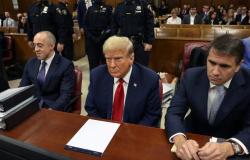The visit underscores India’s eagerness to deepen ties with Bhutan, particularly against the backdrop of Beijing’s rising financial and diplomatic clout aimed at challenging New Delhi’s regional dominance.
Questions have been raised about Modi’s visit given the limitations on the incumbent government imposed by the Election Commission of India. A ruling government in India is deemed an interim administration during the election season until results are announced on June 4.
High-altitude tunnel becomes new flashpoint in rising India-China tensions
During the pre-announcement election period, Indian leaders are obliged not to unveil major policy decisions or make official overseas visits, according to analysts.
Subramaniam Swamy, a former parliamentarian who is a member of the ruling Bharatiya Janata Party (BJP), has criticized Modi’s visit. “It is silly that a prime minister wants to go to a foreign country when the formalities of general elections have been set. Modi is not a prime minister but an ad hoc PM,” he wrote on X, formerly Twitter.
Inclement weather in Bhutan almost derailed Modi’s visit but Delhi proceeded with its plan by postponing it by a day.
During the visit, Modi pledged aid of 100 billion rupees (US$1.2 billion) to Bhutan over the next five years, double the amount of the country’s previous five-year plan.
Modi’s trip came just a week after Bhutan’s Prime Minister Tshering Tobgay held talks in Delhi with top Indian leaders.
A highlight of the Bhutan trip was when King Jigme Khesar Namgyel Wangchuck conferred upon Modi the country’s highest civilian award, the Order of the Druk Gyalpo. Modi was the first foreign national to receive this honour.
The Bhutanese royal family also held a dinner for Modi, the first Indian prime minister to be hosted at the palace.
Strategic importance
Situated in the eastern Himalayas, landlocked Bhutan holds significant strategic importance for India since both countries established diplomatic ties in 1968.
Bhutan is arguably the only regional country that remains under Delhi’s orbit of influence while ties with Nepal, the Maldives, and Sri Lanka have cooled under Modi’s tenure.
“Bhutan holds an extremely important position in India’s neighborhood policy,” said Smruti Pattanaik, a research fellow at the Delhi-based think tank Manohar Parrikar Institute for Defense Studies and Analyses.
“Bhutan receives the largest development fund that India gives. India had funded the first two five-year plans [of its neighbour]. Several infrastructure projects are coming up,” she added.
27:28
Why India’s Citizenship Amendment Act (CAA) is so controversial
Why India’s Citizenship Amendment Act (CAA) is so controversial
During the visit, Modi attended the inauguration of a women’s and children’s hospital in the Bhutanese capital Thimphu. He also promised to build an airport and two rail lines in Bhutan to meet its economic and transportation needs.
ORF’s Shivamurthy noted the Bhutanese community is expected to benefit from India’s funding through projects such as a green economic zone in the town of Gelephu bordering India’s Assam state that is expected to create jobs and a Gyalsung training program targeting Bhutanese youths.
The possibility of China extending its regional influence into Bhutan, however, is a scenario that India has to contend with. Bhutan is the only South Asian country that does not have diplomatic ties with China. But with its sizeable economy, China is well-placed to provide financial assistance to Bhutan, analysts say.
However, China’s encroachment into Bhutan’s territory will complicate its attempt to foster closer economic ties with the South Asian country.
India comes for China’s manufacturing crown as supply chains slowly shift







